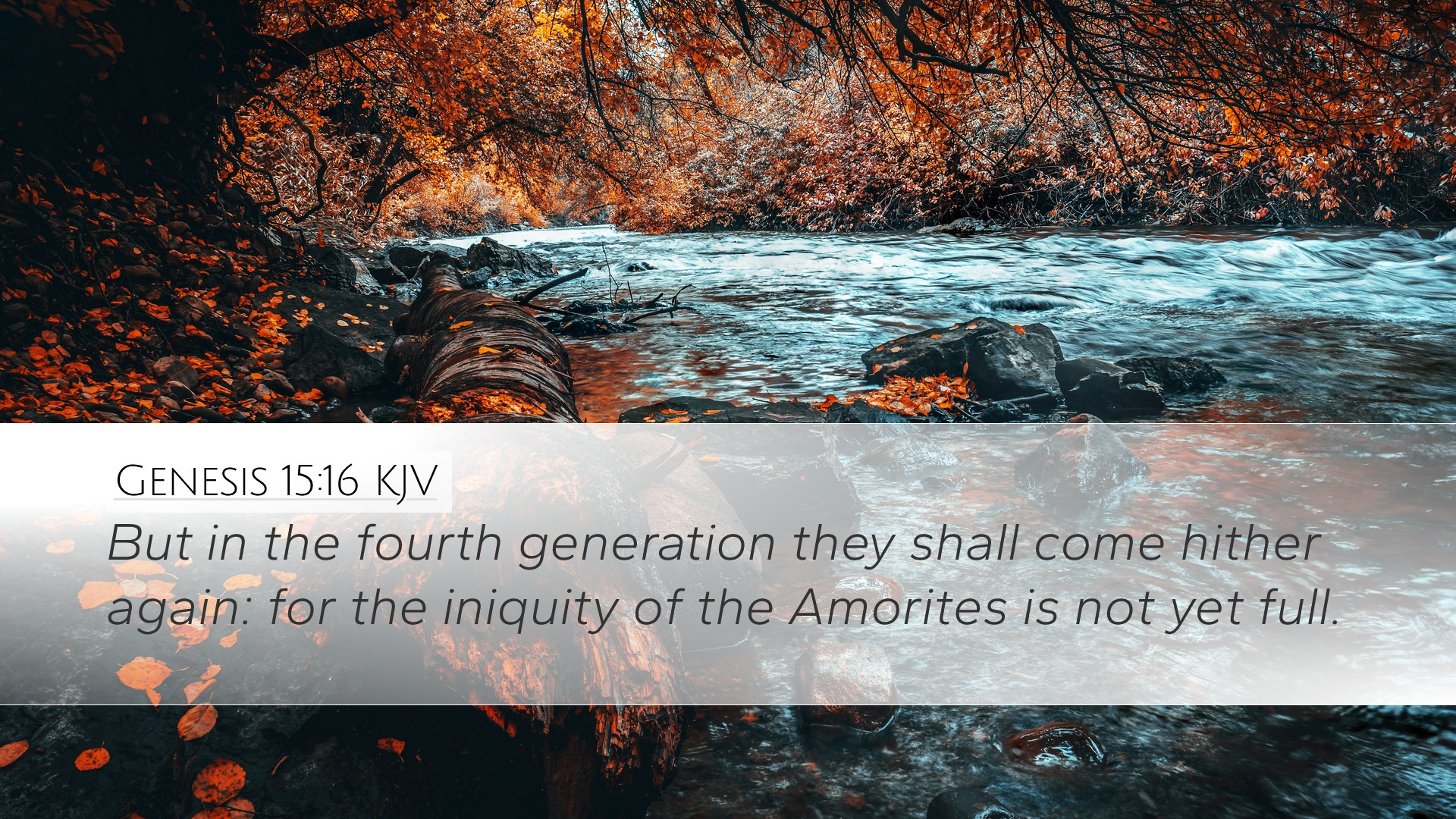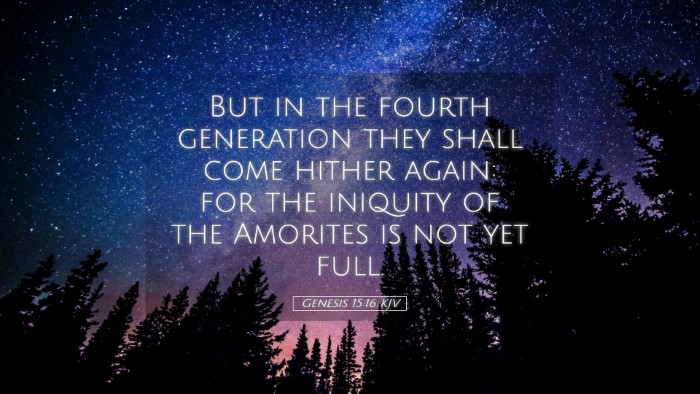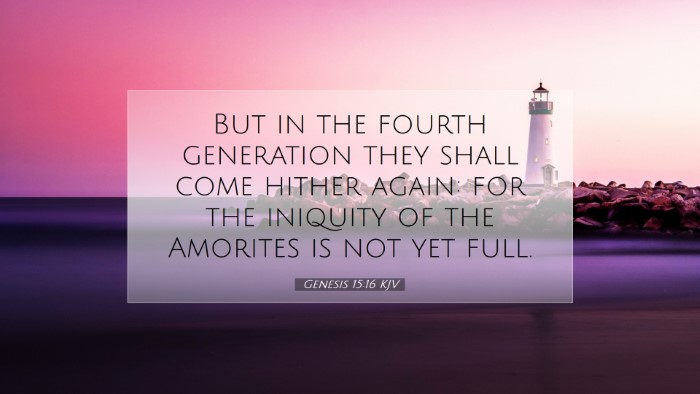Commentary on Genesis 15:16
Genesis 15:16 states, "But in the fourth generation they shall return hither: for the iniquity of the Amorites is not yet full." This verse is crucial for understanding God's covenant with Abraham and the delayed judgment of the Amorites.
Contextual Background
In this chapter, God reaffirms His covenant with Abraham, promising him numerous descendants and the land of Canaan. The verse is situated in a larger narrative concerning Abraham's call and the future of his offspring. Understanding the socio-political and spiritual climate of the time is essential for a deeper comprehension of this passage.
Theological Significance
This verse highlights several theological themes:
- Divine Patience: God demonstrates patience as He allows the Amorites' iniquity to reach its full measure before enacting judgment.
- Covenant Promise: The promise of land is intertwined with moral conditions. The delay in Israel’s conquest serves a dual purpose of fulfilling His promise to Abraham and providing a fair warning to the Amorites.
- Generational Perspective: The mention of "fourth generation" suggests God's providential concern for the lineage of Abraham and the unfolding of His redemptive plan over time.
Commentary Insights
Matthew Henry
Matthew Henry emphasizes that this verse is indicative of God's long-suffering nature. He remarks that God will not bring His people into possession of the promised land until the time is right, which underscores the moral decay of the Amorites. He points out that although God could have immediately judged the Amorites, He chooses to allow them time for repentance, showcasing His justice intertwined with mercy.
Albert Barnes
Albert Barnes highlights the significance of the Amorites' iniquity not being "yet full." He suggests that God's justice operates with perfect timing and that the Amorites had not yet reached the point of irredeemability. Barnes also notes the prophetic implication of returning to Canaan, wherein Abraham's descendants would not only inherit the land but also be instruments of divine justice against the nations that opposed God's purpose.
Adam Clarke
Adam Clarke provides a nuanced interpretation of the generational time frame mentioned in the verse. He elaborates on the significance of the "fourth generation," implying a theological view that God works within human history, often extending grace over generations. Clarke also connects this idea with God's overarching plan of redemption, noting how the eventual judgment of the Amorites would be a necessary act of divine justice that serves to fulfill God's larger redemptive purpose through Israel.
Practical Implications
The insights from this verse can be applied in various ways:
- Patience and Justice: The dual nature of God's character - His patience towards sinners and eventual justice - serves as a reminder for believers to engage with others with grace and to trust in God's perfect timing.
- Generational Legacy: Understanding that the actions and faithfulness of one generation can influence the next fosters a sense of responsibility for nurturing faith within families and communities.
- Divine Sovereignty: The acknowledgment of God's ultimate control over history encourages believers to remain hopeful and faithful, assuring that God's promises will be fulfilled according to His divine plan.
Conclusion
Genesis 15:16 serves as a profound theological pivot in the narrative of God’s covenant relationship with Abraham and His broader plan for humanity. The insights from esteemed commentators such as Matthew Henry, Albert Barnes, and Adam Clarke enhance our understanding of the nature of God as just and merciful, bringing forth critical reflections relevant for pastors, students, theologians, and Bible scholars. The interplay of mercy, justice, and the significance of generational faithfulness remains a cornerstone theme in biblical theology.


